Covid Forces Orthodox Jews To Seek New Dating Venues
The advertisement posted on an app that lists meet-up spots for single Orthodox Jews might, before the pandemic, have seemed bizarre.
"Terrace with a view of Jerusalem," it read. "Bring warm clothes. We offer hot drinks! An ideal spot for marriage proposals!"
But with traditionally accepted Orthodox dating venues like cafes closed due to restrictions to stem coronavirus, young and devout people wanting to get married in Israel have had to consider alternatives, like terraces in private homes.
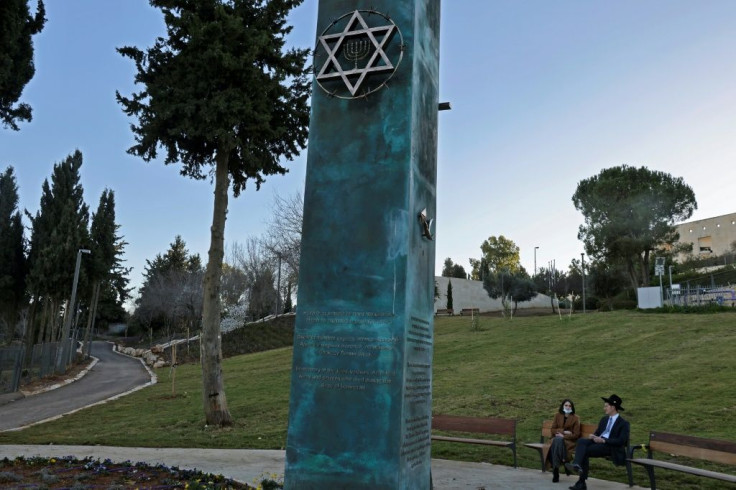
Jewish law prohibits a man and a woman who are not married from being alone in a room together, or from having any physical contact -- even if chaperoned.
The rituals of pre-marriage courtship are also strictly codified.
Potential spouses are generally connected through an intermediary and agree on a meeting spot that offers enough privacy for a personal conversation, but is fully in public view.
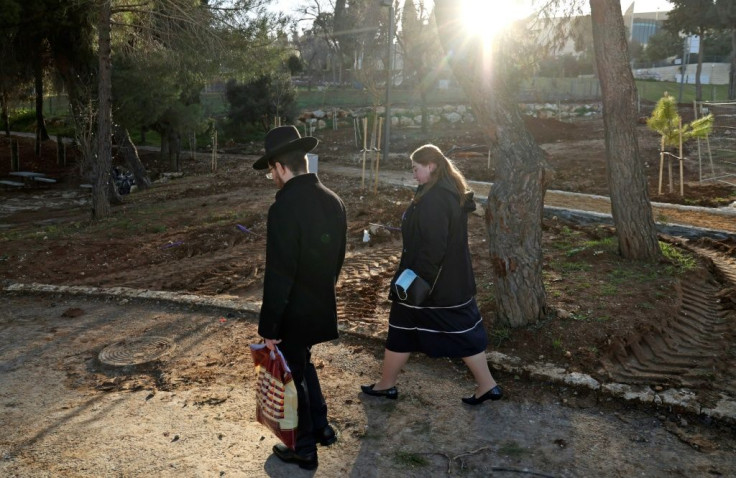
Israel has recorded over 4,800 deaths since the pandemic began, and the authorities have put in place a third national lockdown, while also pushing an aggressive vaccination campaign.
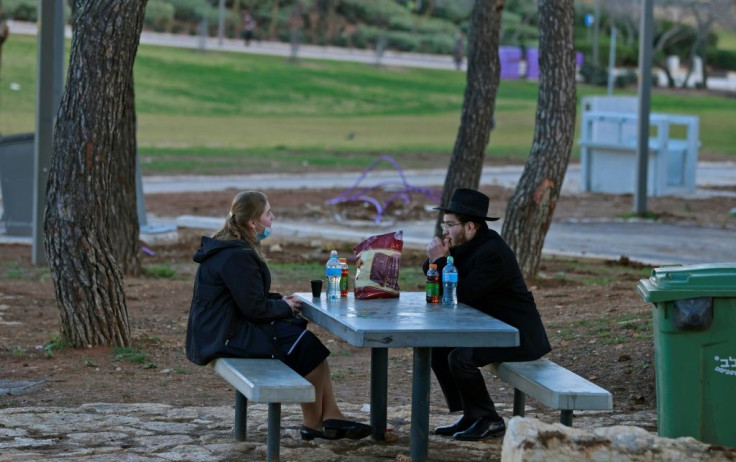
But under lockdown rules, Israelis can move a kilometre from home -- with a range of exceptions, including medical visits and grocery shopping -- and some seeking love will stretch the rules too.
So with indoor venues not an option, outdoor options have therefore become increasingly popular.
Benches that line the walking path along Jerusalem's Ottoman-era rail line, or seats in public gardens, are regularly filled with young women in long skirts and kippa-wearing men attempting earnest chit-chat, while maintaining a respectful physical separation.
But Jerusalem's winter weather, which in recent weeks has included heavy rainfall and a hailstorm, has made outdoor matchmaking unpleasant.
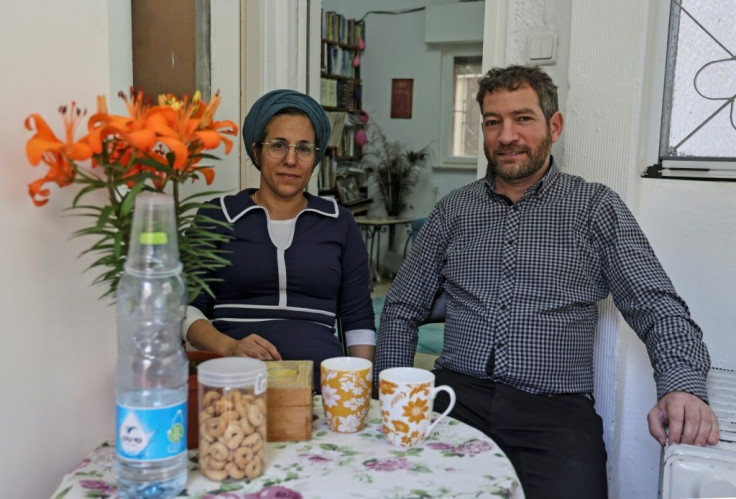
"With the corona, they really have nowhere to go. It's too cold to walk outside, especially in Jerusalem," said Naama Avidan, a 40-year-old religious Jewish mother of five.
Avidan has therefore decided to open her modest ground floor apartment to young people trying to date.
On a recent chilly day, a young man and woman, who arrived separately, were escorted through Avidan's backyard to a glass-enclosed room adjacent to the apartment.
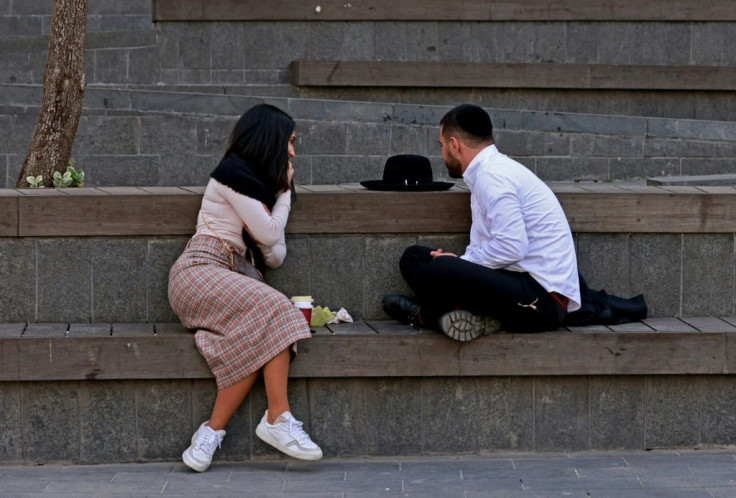
The blinds were lowered half way as Avidan's husband Amiel served tea to the guests, who asked to remain anonymous.
Amiel explained that couples were coming to their homes despite lockdown restrictions because "marriage is not something that can be delayed too much."
Getting married young and having large families are imperatives within religious Jewish communities.
But the pandemic has suppressed marriage rates, according to the religious affairs ministry, which reported a more than 10 percent decline in Israeli unions last year.
"There are fewer weddings, fewer meetings, everything is slowing down," Naama Avidan said.
"I know couples who have repeatedly postponed their weddings because of the lockdowns."
According to Jewish tradition, facilitating a wedding is a "mitzvah", or good deed, which can help secure a place in heaven.
Avidan told AFP that she and her husband "wanted to do what we can to keep the meetings going," given the centrality of marriage to Jewish life.
They are one of an estimated 250 couples who have offered their home as a venue on the app set up by Orthodox Jew Tzuriel Gabizon.
Gabizon said he launched the service in June as part of a larger effort to help foster Jewish unions during the pandemic, which also includes videoconference workshops.
"I got married six years ago after having met 252 women," he told AFP.
That courtship process was "a test God imposed on me," he said.
He described dating as "an obstacle course" that inspired him to launch his service, which he has named "Project 252."
© Copyright AFP 2024. All rights reserved.





















